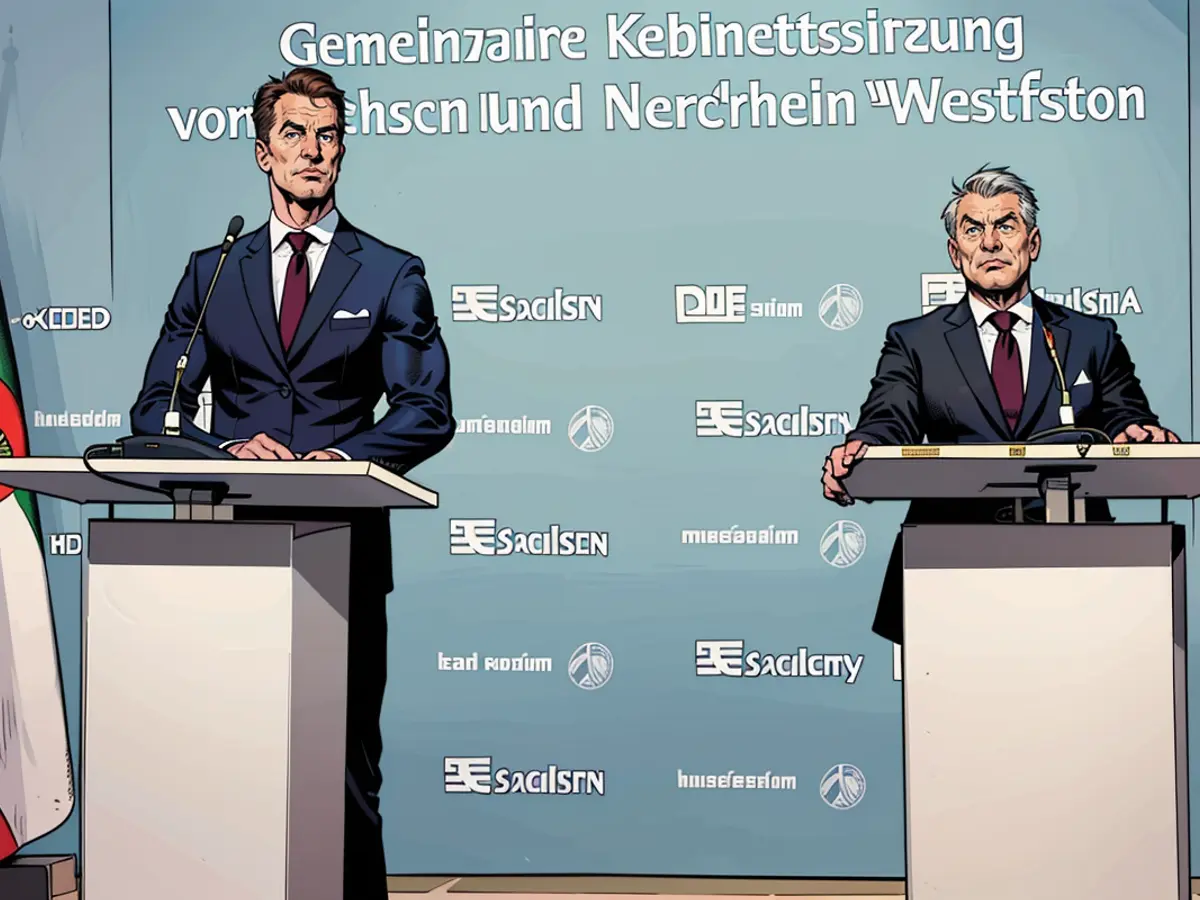Political affairs - NRW and Saxony aim for increased collaboration.
Saxony and North Rhine-Westphalia are looking to strengthen their partnership and share insights on various issues. Saxony's Prime Minister, Michael Kretschmer from the Christian Democratic Union (CDU), expressed his gratitude for the collaboration, particularly in relation to structural change. On Tuesday, there was a joint cabinet meeting in Leipzig, where they announced the Investment Law for the Enhancement of Lignite Regions in partnership with Saxony-Anhalt and Brandenburg. The 40 billion euros agreed upon must be invested for this program to succeed.
The funding period for the second time after 2027 was released by the federal government earlier in March. This means that municipalities in the lignite areas may now proceed with additional structural change projects. Kretschmer highlighted the plight of Germany's municipalities, pointing out how federal laws put a financial strain on them. He stressed the importance of ensuring these funds reach the municipalities to alleviate their financial burdens.
There's a coalition between NRW and Saxony, moving from coal to artificial intelligence (AI). The aim of this collaboration is to create more trust and unity between East and West.
Both states are also taking action together against irregular migration. They want to ensure fair treatment for those who come to Germany legally, while also ending irregular migration to integrate people fleeing from war and persecution. Kretschmer noted that the recent measures instated to deal with irregular migration were not initiated by the federal government, but by the federal states.
There's a need for substantial amendments to the draft for the Hospital Act, according to the two state governments. It's unclear how penalties will be enforced, especially for hospitals in remote areas. Petra Köpping, Saxony's Health Minister from the Social Democratic Party (SPD), voiced her concern, stating, "What worries us is: How will the hospitals get to the reform until then?" Her counterpart from NRW, Health Minister Karl-Josef Laumann of the CDU, reiterated, "When changing things, you always have to consider the people." The federal government is believed to have considered a reform without consulting the people affected.
Both states are advocating for mandatory insurance to cover natural disasters. Saxony's Justice Minister, Katja Meier of the Greens, stated, "We need liability insurance because we can no longer pass the costs to the taxpayers at the location." Additional funding is also necessary for flood prevention. Since early June, the federal states had supported the idea of a mandatory insurance for property damage for all building owners. The federal government is said to have a proposal for a regulation by the end of the year. Property damage refers to the damages incurred due to natural disasters such as floods, storms, and landslides.
Benjamin Limbach, the NRW Justice Minister from the Greens, expressed disappointment with the stance of Federal Justice Minister Marco Buschmann from the Free Democratic Party (FDP). He believes insurance should compensate for damages that could not be prevented.
Read also:
Hendrik Wüst, the Prime Minister of North Rhine-Westphalia, has demonstrated his support for the collaboration between the two states, expressing his enthusiasm for the joint efforts with Saxony.
The CDU, being a part of both the NRW and Saxony Cabinets, plays a significant role in the strengthening of the partnership between these two regions.
Michael Kretschmer, the Prime Minister of Saxony, praised the cooperation and highlighted the shared challenges, such as the financial strain imposed by federal laws on municipalities.
The states of NRW and Saxony are working together to create trust and unity between East and West, as they transition from coal to artificial intelligence.
Both states, in their joint efforts, are vocal about the need for mandatory insurance to cover natural disasters, such as floods, storms, and landslides.
The states of NRW and Saxony, along with Brandenburg, are striving to succeed in the Investment Law for the Enhancement of Lignite Regions, with a 40 billion euro commitment towards this initiative.








